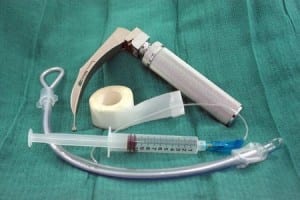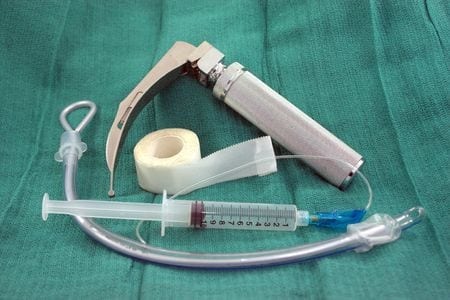RICHMOND, VA – Patient Mary Andrews, a 52-year-old female with atrial fibrillation tried to pronounce the beta blocker “metoprolol” earlier this morning. She found herself stuck on the second syllable. Thanks to her nurse and brisk work from the rapid response team, Andrews was spared further misery and electively intubated for airway protection.

“Things were touch and go for a moment,” said respiratory therapist Jason McDonnell, who instinctively threw in an endotracheal tube and saved Andrews’ life. “She didn’t sound right. She put the emphasis on the first syllable. She reached for her throat. She was gasping for air. We had to save her airway. It was the right thing to do.” Andrews’ is resting comfortably, intubated, with a suction canister filled with 500 cc of nonbloody, nonbilious consonants. A scopolamine patch has helped with excess secretions.
It has a been rough week at RMC. Over 80% of intubated patients in the ICUs suffered aspiration from trying to pronounce medications.
“This is our third aspiration on a beta blocker this week,” said intensivist Robert Whitestone. He has been working diligently alongside speech therapy to help patients pronounce “carvedilol” and “nebivolol.” But those aren’t the only culprits. “I’m pleased to say our levetiracetam guy is doing better. So is the pramipexole lady. We extubated two patients who failed to say hydrochlorothiazide. They’re going to the floor.”
Despite those good stories, it’s not always a happy ending.
“I think Andrews will pull through. But I’m worried about this one lady who decompensates when she tries to say hydroxychloroquine,” admitted Whitestone. “Poor lady gets blue in the face. Then, sadly, we made an unfortunate gentleman DNR for acute pronunciation of palivizumab. It was complicated by alphabetic shock and C. diff. He never even had a chance.”







